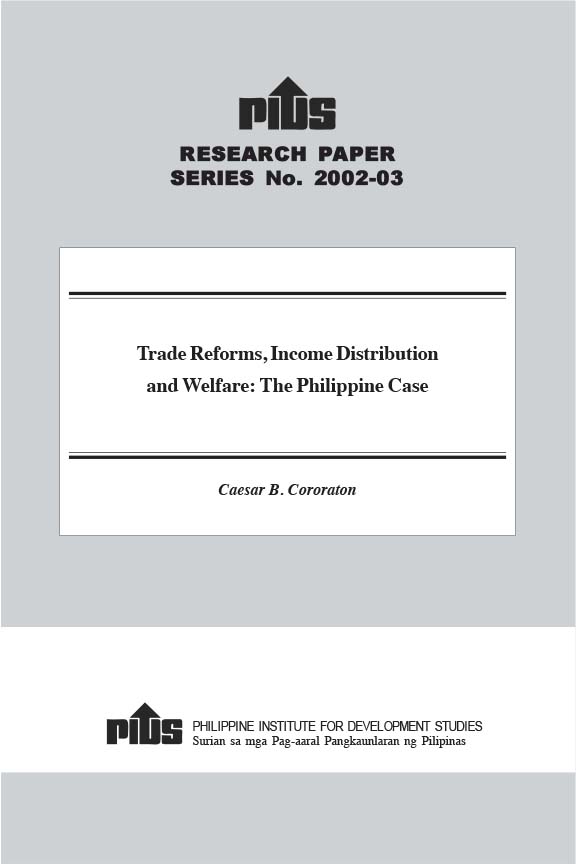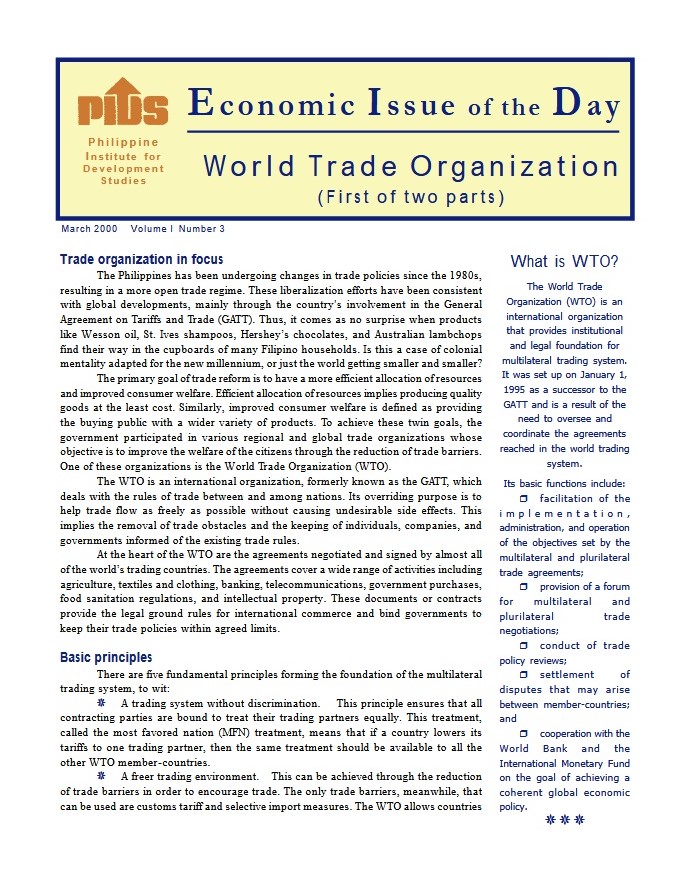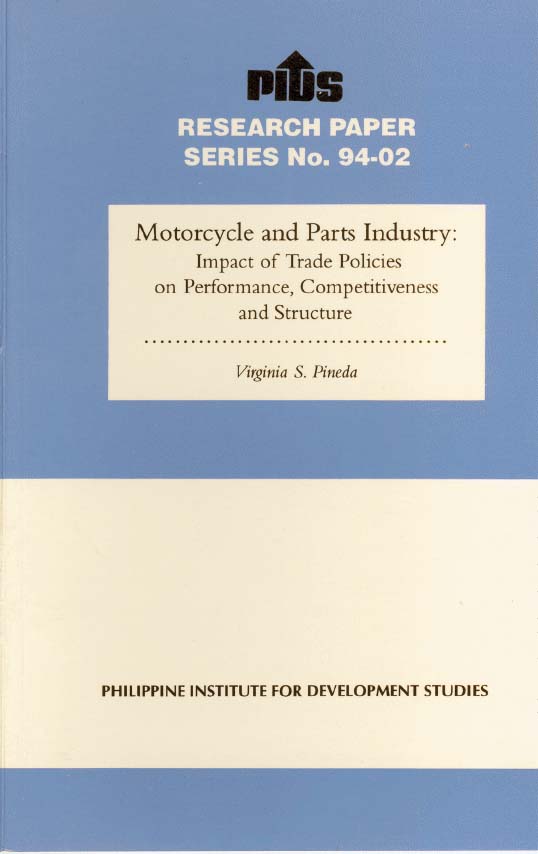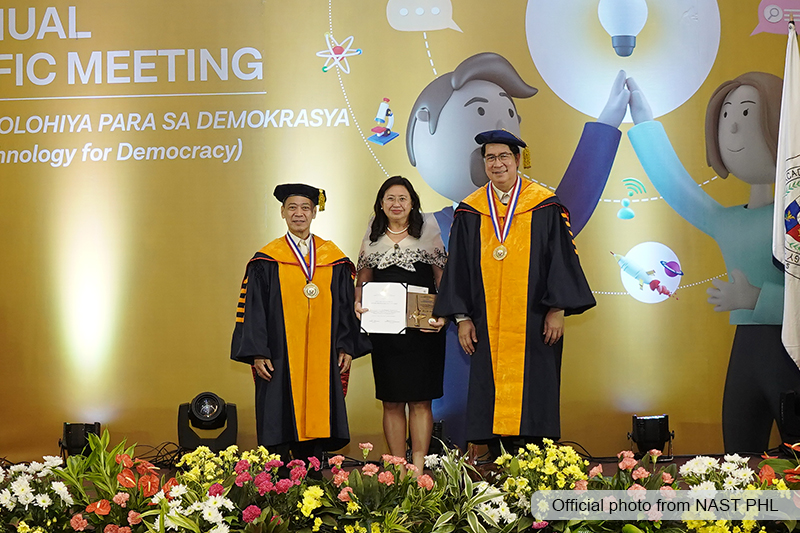In the past one and a half decades, the Philippine government pursued major economic policy reforms. One of the key focused areas is the trade sector. Policy reforms included tariff reduction, simplification of tariff structure, and tariffication of quantitative restrictions. While some of the reforms were pursued unilaterally, others were done under various multilateral agreements such as the World Trade Organization (WTO), and regional agreements under the Association of Southeast Asian Nations (ASEAN) such as the ASEAN Free Trade Area (AFTA). This paper aims to analyze the effects of the trade reforms, particularly tariff policies, on income distribution and welfare. The paper employs a computable general equilibrium (CGE) model calibrated to Philippine data in the analysis.













